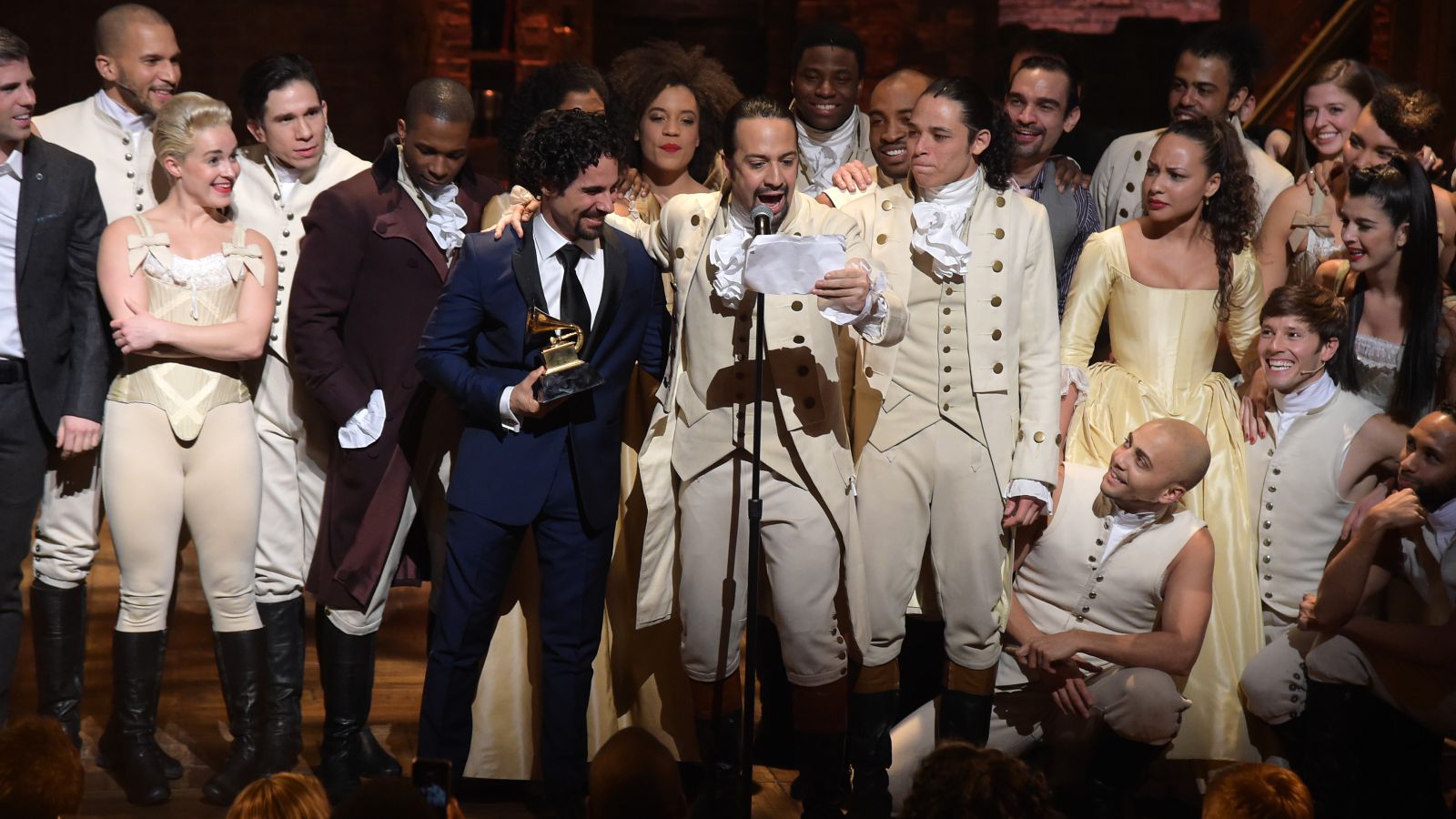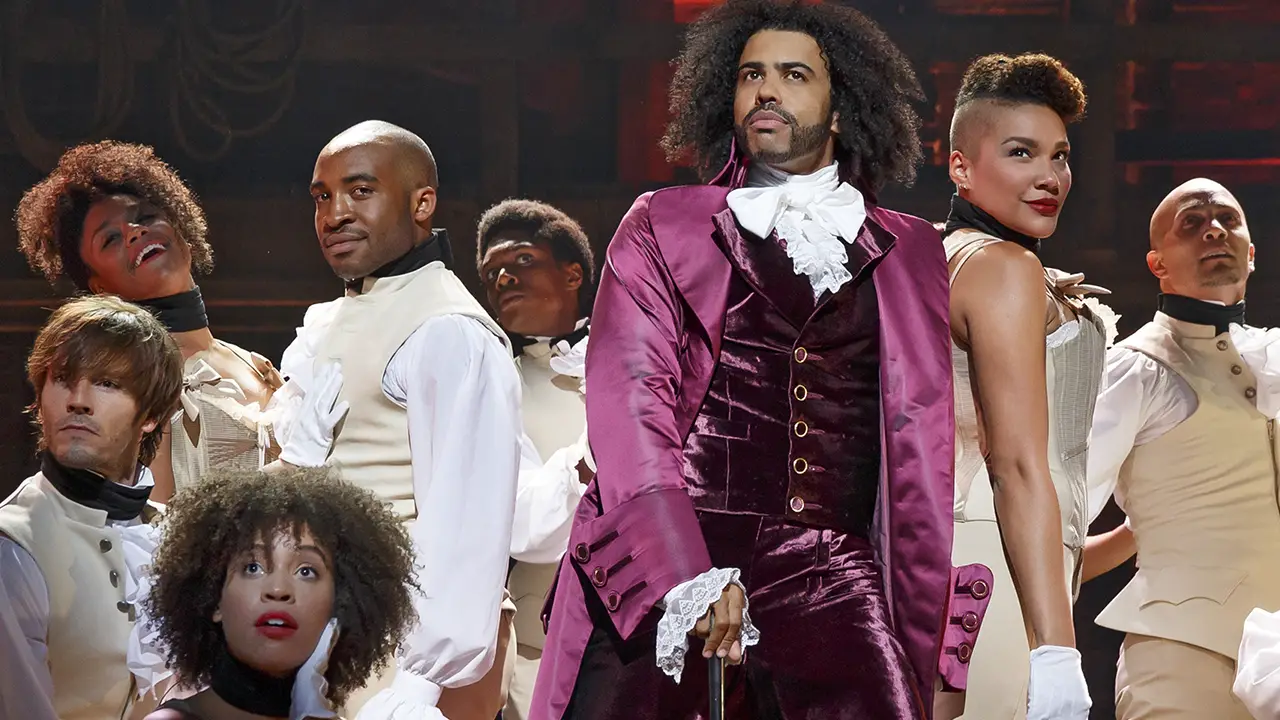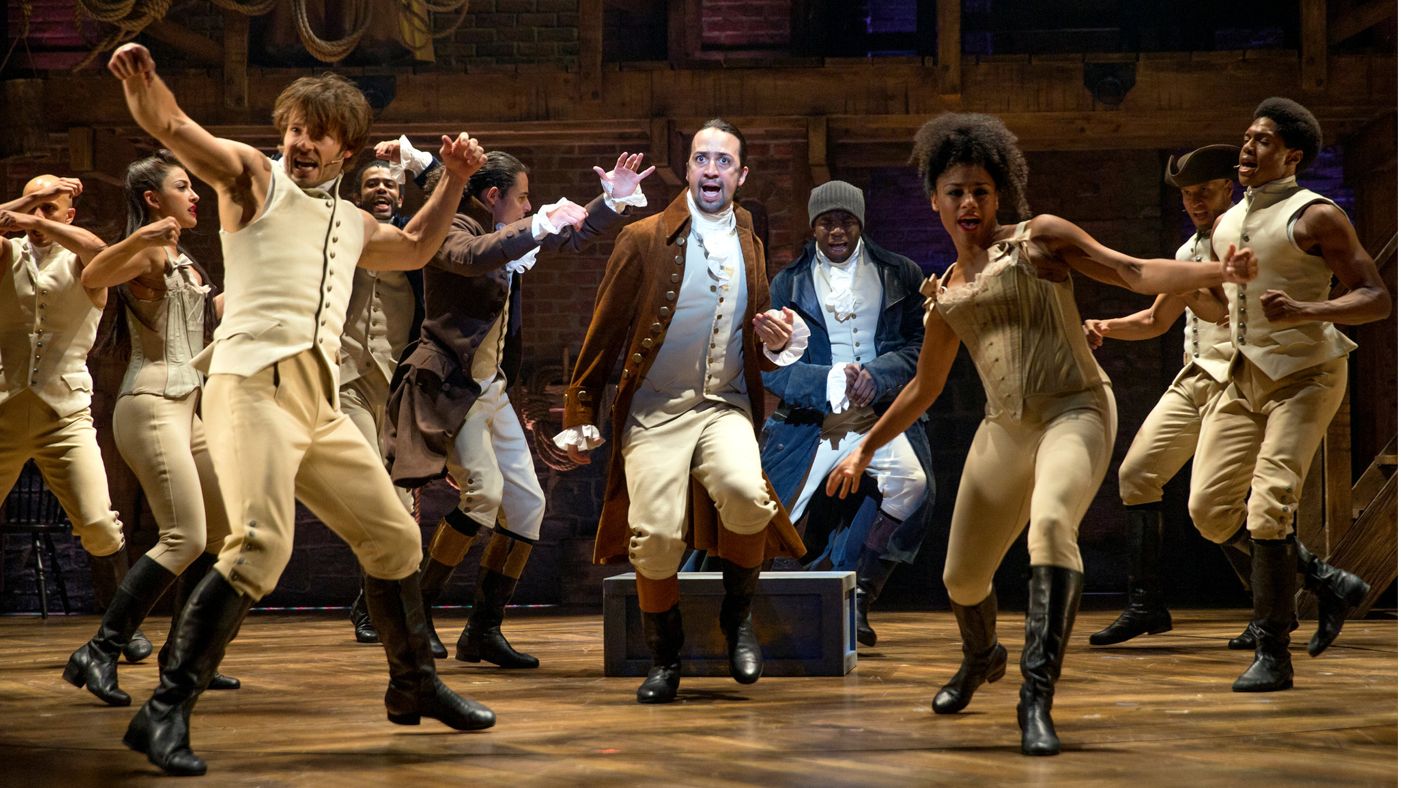When my mom knocked on the door of my apartment, I was an hour and forty minutes into the “Hamilton” cast album. Her arrival was not going to distract me from my favorite line in the show, so I had two options: Leave her waiting for another seventy-five seconds until it was over or keep singing while I opened the door.
I chose the latter. “I’m in the cabinet. I am complicit in watching him grabbin’ at power and kiss it. If Washington isn’t gon’ listen to disciplined dissidents, this is the difference: This kid is out! Oh!”
“Hi, Mom.”
Almost instantly, I regretted my decision as she looked at me, rolled her eyes and asked, “Are you really listening to ‘Hamilton’ again?”
What followed was a long inquiry into why a show could be so popular simply because it cast Latinos and African-Americans in the roles of America’s Founding Fathers. Her point was that Americans are decently educated; we know that the Founding Fathers were white. That’s simple history. Why is it necessary to alter the nation’s historical ethnicity?
The question is valid, and interviewers have been grappling with it since the off-Broadway premiere of “Hamilton: An American Musical” in January 2015.
Since that premiere, the musical has moved to Broadway and taken the nation by storm. An interview with the show’s creator Lin-Manuel Miranda is a sure way to guarantee YouTube views. Miranda’s first appearance on “The Tonight Show Starring Jimmy Fallon” has gained over 5.8 million views, and others aren’t far behind.
The show has been a shocking success, but why? After listening to the cast album, the answer seems obvious. “Hamilton” shows that issues America struggles with today are the same issues it struggled with at its formation: government involvement, gun violence, foreign affairs, political party divisions, etc. The show is a history lesson melted into a hip-hop musical.

It’s also easy to see why “Hamilton” was a shock. Yes, there is a multiracial cast playing the Founding Fathers, and yes, they are rapping. The idea is crazy, but effective.
The show was a surprising success for apparent reasons, but people shouldn’t be surprised by said success.
Despite this, the question of color-conscious casting is asked with incredulity in nearly every interview.
Emma Watson interviewed Miranda in March as part of the HeForShe campaign and asked, “There’s been this amazing response to [‘Hamilton’] because you cast a multiracial cast in the roles of, you know, who would have been traditionally white men . . . Did this flow naturally?”
“CBS Good Morning” approached the topic as well: “If the cast of ‘Hamilton’ doesn’t sound like we imagined the founders sounding, well, it doesn’t look like them either.”
When interviewed by “PBS News Hour,” Miranda was asked with astonishment, “What about the casting of the Founding Fathers as Latino, as black? Is that an important part of this?”
The list goes on. Charlie Rose brought up the topic of multiracial casting in his “60 Minutes” interview with Miranda, who was also asked to address the question when speaking in his nephew’s school auditorium. It seems the disbelief surrounding color-conscious casting is inescapable.
Miranda isn’t the only one who has been faced with this mentality. The cast members and even Ron Chernow, who wrote the biography that inspired the show, have been asked to discuss this topic over and over again.
At first, Chernow admitted he was shocked at the casting choice as well. “I remember opening the door late one afternoon . . . and I looked in and the first thought that went through my head was, oh my God they’re all Black and Latino.”
But he continues, saying that before he knew it he had “become a raving militant on this whole issue,” and he had, “never heard any singers, any actors, capture the fire and passion of the American revolution in the way that these young Black and Latino performers did… After a couple of minutes I completely stopped thinking about what color or ethnicity they were.”
The success of “Hamilton,” and of the color-conscious casting that accompanies it has been undeniable. It’s almost as if America needed these young, ethnically diverse characters to tell the nation’s history.
The casting choice doesn’t change the past. Altering history is not the intent or the result, but the unexpected cast does take viewers and listeners out of preconceived history ruts and force them to look at historical figures as real people, who have dreams, ambitions and flaws just like everyone else. These characters aren’t the old guys who students had to identify on history tests. They are people, and casting them multi-racially makes us see them as such.

“This is the story of America then, told by America now,” Miranda explained to Charlie Rose in his interview. Over the past year, this has become the playwright’s favorite answer to questions surrounding the show’s ethnically diverse cast. “This is what our country looks like now,” he told Rose, “so we’re allowed to tell the story because it’s the story of our country too.”
The goal, ultimately, is to eliminate distance between the story and the audience, and multiracial casting does just that. In his interview with Emma Watson, Miranda explains how the casting brings the audience into the story. “If it doesn’t look like a John Trumbull painting from the 1700s then we can identify. We can find our way into it.”
At first glance, it’s surprising that an ethnically diverse cast could play the Founding Fathers, but there’s no reason for the surprise to remain.
The casting is unconventional, but it enhances the show. Viewers and listeners are pulled away from preconceived knowledge of U.S. history and are forced to consider the humanity of the Founding Fathers.
It’s time that interviewers, viewers and listeners stop being surprised by the success of multiracial casting in a play about the founding of our nation.
Was this phenomenon expected? No. But it is clearly resonating with its audiences, who love the casting choice and will defend it at all costs.


















[…] A specific trait of this production is the inclusion of a very diverse cast, primarily made of black and Latino actors. This casting choice plays into both modern and past history. In an interview, Manuel Miranda responded to a question about the casting choices, “This is the story of America then, told by America now.” […]
[…] Rich Asians does not. Rather like Hamilton, the blockbuster Broadway musical that audaciously casts people of color in roles representing America’s Founding Fathers, Soft Power reconceptualizes received history by formally acknowledging the central role that […]